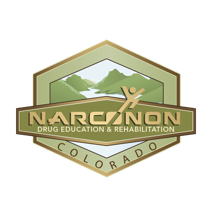Building Up the Courage to Confront a Loved One About Their Addiction

In the addiction field, we hear about it all the time. Family members who are worried about their loved ones but they aren’t sure how to confront them about the problem. They worry about pushing their loved one away and fear that it might send them “over the edge.” So what is someone to do when they are worried about their loved one’s substance abuse but aren’t sure how to talk to them about it?
1. Remember that you are coming from a place of love.
While an addict may not see it at the time, what your concern ultimately stems from is love. If you did not care about the person then you would not feel the need to say something about their self-destructive behavior. In order to try to help save a loved one that is struggling with addiction, we must be willing to have the uncomfortable conversation about how things need to change.
2. Make note of changes you have seen occurring and how you notice it is affecting them.
Sometimes people cannot see how much they are affecting the people they love until they are called out on it. By its very nature addiction causes people to become selfish in their actions. Many times people will lie to themselves by saying the only person they are harming is themselves so that they can continue on with their addiction. In order for healing to being it is necessary for them to see that they are actually harming everyone around them with their actions.
3. Remember that it is better to say something and be wrong than to not say something and be right.
Sometimes people think their loved one has a drug problem and they end up not being right, most of the time though this is not the case. With the record number of deaths resulting from drug overdose, the United States is seeing it is better to risk being wrong about an assumption and saying something than not doing anything and being right. The sooner someone can begin to work on the underlying issues that are contributing to their condition the sooner they are able to get out of the all too often deadly cycle of addiction.
4. Know that you are doing what you can to try and help.
While the conversation may blow up and turn into a particularly unpleasant event remember that you are doing everything you can to try and help. The best thing you can do for your loved one is to confront them about the problem and try and help them find solutions to get better. While it will ultimately be up to the individual to decide to change at the end of the day you’ll want to know you did everything you could.
5. Having them be mad at you for a while is better than being mad at yourself for the rest of your life.
Sometimes a major thing that holds people back from confronting their loved one about suspected substance abuse is the fear that they will upset the person. While there is a good chance that the person will get upset with you it is important to remember that you are still doing the right thing. It has often been said that if an addict is mad at you it is because you are no longer enabling them and there is a lot of truth in that statement. Sometimes people need that extra nudge to accept that they have a problem before they are willing to do something about it. While they may be mad at you for bringing it up it sure beats being mad at yourself for letting it slide and then having something bad happen later on.
6. Call a professional for help.
Sometimes we all need a little help, especially when it comes to helping others with an addiction. If you are not sure what to say, what to do or even where to begin then it is important to reach out for help. There are people out there who are specifically trained on how to deal with these sort of situations and they are more than willing to help. Sometimes the best way to help the ones we love is by asking for help ourselves.


